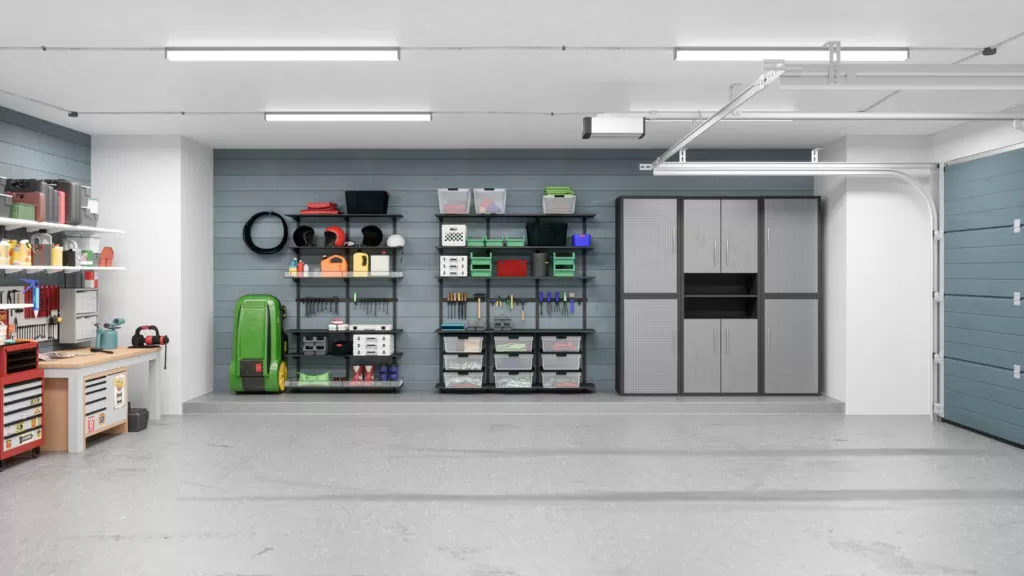Your garage is likely a storage space for all kinds of things. Aside from your car, you could be storing sporting goods, tools, gardening equipment, seasonal decorations, and much more in there. As this is the case, you must be sure you’re storing items safely. If not, your garage is at risk for fire damage.
That sounds frightening, but following these simple tips will make your garage much safer and lower the risk overall. Take a look at how you can implement fire safety in your garage.
Garages And Fire Safety
Your garage is one of the areas most at risk of fire in your home. In fact, every year, there are 6,600 garage fires reported in the US, which results in at least $457 million’s worth of property damage. Even worse, they lead to around 30 deaths and 400 personal injury cases.
As such, you can see just how important it is to take good care of your garage and fireproof it to the best of your ability. Here are some tips to help you do just that.
1. Clear Out Your Garage
Firstly, you’ll want to ensure that you have a good clear out of your garage and remove anything that doesn’t need to be in there. Go through all the items you store there, and remove anything you haven’t used in over a year.
You can easily remove items by having ‘sell’, ‘donate’, and ‘trash’ boxes. Ensure that you deal with these items quickly as soon as you’ve sorted them. The sooner you actually remove them from your garage, the better.
Clearing out your garage means there’s less clutter in there, so there’s less fuel should a fire ever break out. Plus, you’ll find it much easier to find the items you keep in there once you’ve removed all the extra clutter around them.
2. Remove Flammable Items
When clearing out your garage, look at the items in there that could be flammable. The garage is a popular place to store paints, varnishes, gas cans, and so on. If possible, these should be removed from your garage to reduce the fire risk.
The best place for items like these is a shed in your garage. That will ensure that they’re well away from any heat sources and protect you from VOCs too.
If you can’t remove them from the garage, ensure that you’re storing them away from heat sources, such as space heaters. This will reduce the risk of these items igniting.
3. Bring Your Garage Up To Code
If you haven’t done much work on your garage recently, you may need to bring it up to the fire code. That sounds intimidating, but it shouldn’t be much work on your end.
Inspect your garage, and look for any issues that could be fire hazards. For example, you want to ensure that all exits are fully accessible in case you need to evacuate quickly. You’ll also want to look at having Type X gypsum boards installed on the ceilings and any walls shared with the house properly.
Also, consider having your garage door replaced. A new garage door will be properly fire rated and give you the protection you need.
4. Take Care When Plugging In Appliances
You’re likely to plug in a range of appliances in your garage, such as power tools, lawnmowers, refrigerators, and so on. As you’re not in your house, you may let fire safety slip in a way that you wouldn’t normally.
As such, remember that you should only plug in one appliance per outlet to avoid overloading them. If you need to use an extension cord, these should be a temporary use only. If you do these things over long periods, that can lead to overheating and electrical fires.
5. Install Appropriate Alarms In Your Garage
In your home, you’ll have alarms that will let you know if there’s a fire. Smoke and carbon monoxide detectors will go off if there’s danger, so you know to get out and get help. The same should go for your garage, too.
Having a smoke detector in the garage will help protect your home by alerting you of fire as soon as possible. A heat alarm is a very good idea, as it will let you know when the temperature is high enough to indicate fire too. Find alarms that have battery backups, and test them twice a year to ensure they’re working as intended.
6. Keep Your Vehicle Maintained
If you store your car in your garage, it will be a large risk if a fire breaks out in there. Worse, it could be the source of the fire itself. Of course, that is the worst-case scenario, but you want to ensure that you lower the chances of that happening.
The best way to do so is to have the car regularly maintained. When you do this, you’ll catch any problems before they can get worse or even start a fire. You’ll have other benefits, too, such as cheaper repair bills and solving problems before they get worse and more expensive.
7. Keep Fire Extinguishers Handy
Fire extinguishers are something that not everyone keeps in their home, but they’re highly useful to have. If a fire ever were to break out, you could handle it quickly and easily.
In your garage, ensure that you have the right extinguisher for the job. For example, one designed for electrical fires would be useful here. You’ll also want to look into how to use your extinguisher, so you’ll be prepared if a fire were to ever break out.
These tips will ensure your garage is more fire-resistant and should be safer if a fire ever does break out. Follow these tips to ensure that your garage is safe.

